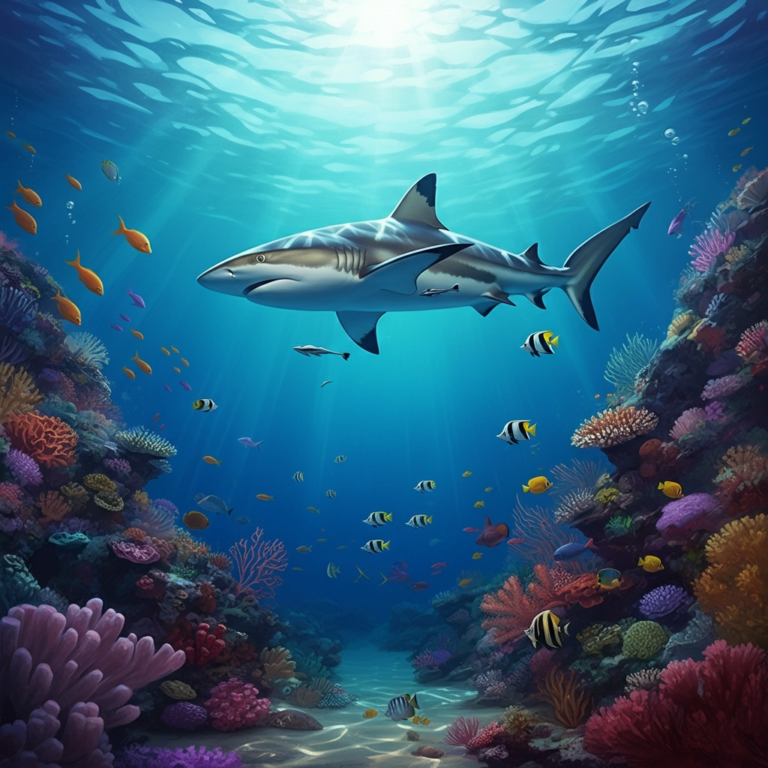The ocean covers more than 70% of our planet and is vital for the health of all ecosystems. It regulates climate, produces oxygen, and provides a home for millions of species. Among the ocean’s inhabitants, sharks play a unique and indispensable role. Often misunderstood and feared, these marine predators are, in fact, the gatekeepers of ocean health. Their presence ensures balance and biodiversity in underwater ecosystems, making them a crucial link in the marine food web.
But what happens when these apex predators face decline? Can the health of oceans persist without them? This post dives deep into the critical ecological significance of sharks, the threats they face, ongoing conservation efforts, and how we all can help secure their future.
The Ecological Significance of Sharks
Sharks as Apex Predators
Sharks, sitting at the top of the marine food chain, are apex predators. This status means they have no natural predators and play a vital role in regulating populations of species below them in the food web. This balance prevents the overpopulation of specific species, which could otherwise disrupt marine ecosystems. For instance, unchecked populations of mid-level predators can deplete smaller fish species, affecting everything from coral reef vitality to plankton populations.
Sharks and Coral Reefs
Studies suggest that healthy shark populations are directly linked to the health of coral reefs. Sharks control populations of reef fish that feed on algae, ensuring these fish don’t overgraze, which could otherwise choke coral reefs. This dynamic relationship illustrates how sharks are an invisible, driving force behind thriving coral ecosystems, which are biodiversity hotspots.
Simply put, when sharks are flourishing, so too are diverse marine life forms, reinforcing why they are indispensable in maintaining ocean balance.
The Threats Facing Shark Populations
Overfishing and Bycatch
Despite their importance, sharks face numerous threats, with overfishing being the most significant. Sharks are often hunted for their fins, meat, and liver oil. Shark finning, in particular, continues to be a rampant issue, fueled by demand for shark fin soup. It is estimated that up to 73 million sharks are killed annually for their fins alone.
Bycatch, where sharks are unintentionally caught in fishing nets targeting other species, also decimates their populations. The lack of effective regulations further exacerbates this issue.
Habitat Destruction and Slow Reproductive Rates
Destruction of marine habitats, such as coral reefs and mangroves, reduces the areas sharks rely on for hunting and reproducing. Compounding this problem is the slow reproductive rate of most shark species. Unlike many fish that lay thousands of eggs at once, sharks produce few offspring and have long gestation periods, making their populations incredibly vulnerable.
The Ripple Effect of Declining Shark Populations
As their numbers dwindle, entire ecosystems feel the impact. For example, without sharks to control predatory fish populations, fish that graze on seagrass increase unchecked, leading to overgrazing and destruction of seagrass beds. Seagrass beds act as carbon sinks, which means fewer sharks could indirectly accelerate climate change.
Conservation Efforts and Success Stories
Global and Local Initiatives
Fortunately, efforts to protect sharks have been rising in recent years. International agreements like CITES (Convention on International Trade in Endangered Species of Wild Fauna and Flora) help regulate shark trade to ensure sustainability. Additionally, local marine protected areas (MPAs) have proven effective in preserving crucial shark habitats and breeding grounds.
Success Stories Around the Globe
- The Bahamas has established national shark sanctuaries, making its waters a haven for various shark species. These measures have not only boosted shark populations but also spurred eco-tourism, benefiting the local economy.
- Palau, a Pacific Island nation, declared its waters a shark sanctuary in 2009, prohibiting all shark fishing. The result? A dramatic rebound in shark species and healthier marine ecosystems.
- Australia, through initiatives like the Great Barrier Reef Marine Park, has demonstrated how controlled fishing practices coupled with conservation efforts can sustain shark species.
These successes underscore that when protective policies meet local commitment, shark populations can recover, benefitting entire marine ecosystems.
The Role of Individuals and Communities
What Can You Do?
Every individual and community has a role to play:
- Support Sustainable Seafood: Choose seafood options certified as sustainable by organizations like the Marine Stewardship Council (MSC). This ensures that the seafood industry does not harm sharks through bycatch or overfishing.
- Advocate for Change: Add your voice to petitions or support nonprofits fighting to protect shark populations, such as the Shark Trust and Project AWARE.
- Promote Responsible Tourism: If you plan on shark-related tourism, ensure it’s ethical and contributes positively to shark conservation efforts. For instance, shark-diving experiences can shift public perceptions of these creatures.
- Reduce Plastic Use: Pollution, especially plastic, significantly harms marine life, including sharks. By reducing single-use plastics, you can help protect shark habitats.
Educating Communities
Awareness goes a long way. By discussing the importance of sharks in maintaining ocean health, individuals can build respect and understanding for these vital species.
Looking to the Future
While the current state of shark populations is alarming, ongoing conservation efforts and increased awareness provide a reason to hope. Sharks are resilient creatures. Given the right protections, their populations can recover, bringing balance back to marine ecosystems.
The challenge lies in maintaining momentum. Governments, organizations, and individuals must continue working together to secure the future of sharks and, consequently, the future of our oceans.
A Call to Action
We encourage everyone—whether you are a marine biologist or simply passionate about ocean conservation—to take an active role in shark protection. Advocate for stronger conservation laws, reduce your ecological footprint, and share the story of sharks with others. Together, we can guarantee a healthier ocean for generations to come.





















0 Comments